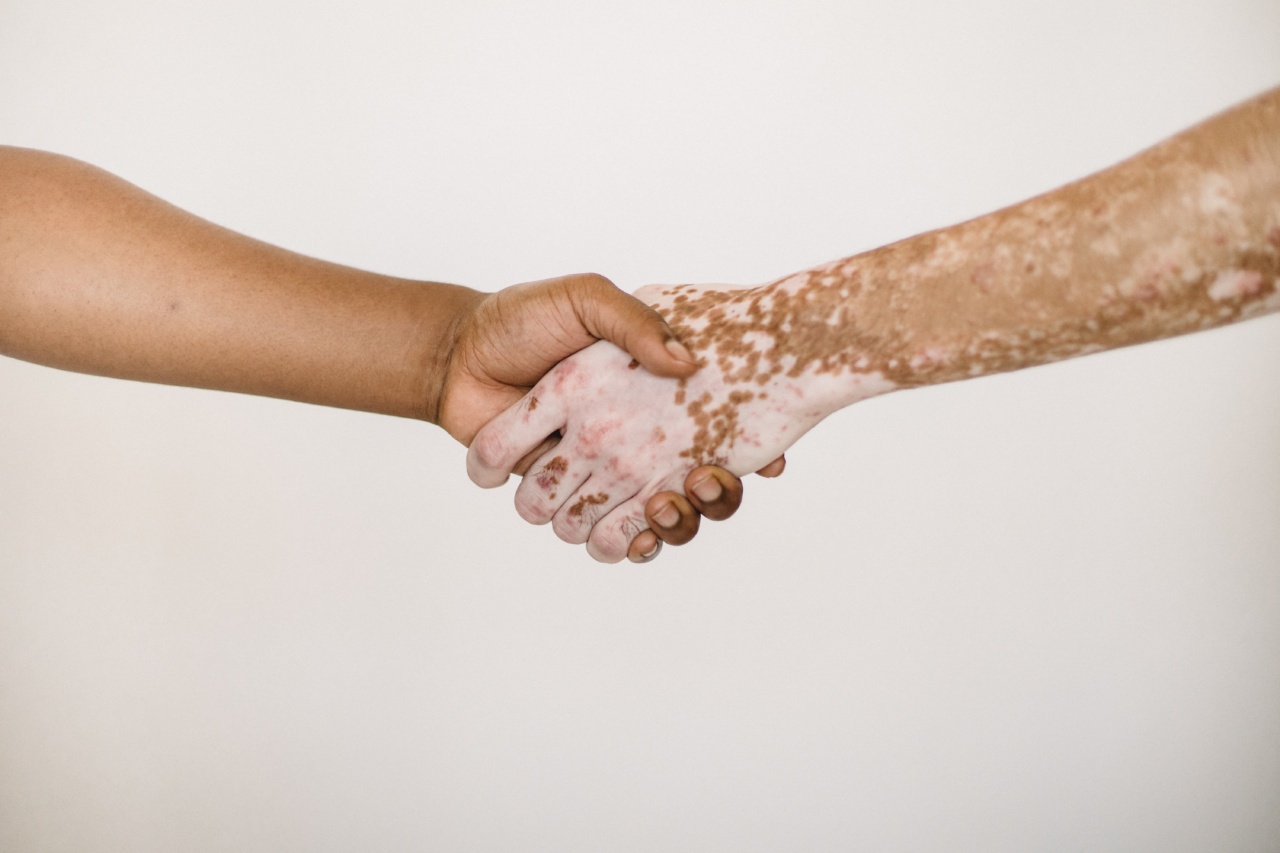Psoriasis is a chronic autoimmune disease that affects the skin, causing it to develop red, scaly patches. This condition affects millions of people worldwide, yet it remains widely misunderstood and stigmatized.
The misconceptions surrounding psoriasis can lead to feelings of shame and insecurity for those living with the condition. In this article, we aim to break down these misconceptions and provide a better understanding of psoriasis, ultimately helping to overcome the stigma associated with it.
What is Psoriasis?
Psoriasis is a non-contagious, chronic skin disorder that speeds up the life cycle of skin cells. In a healthy individual, skin cells grow and shed gradually over a period of weeks.
However, in people with psoriasis, this process accelerates, causing cells to build up rapidly on the surface of the skin. This buildup leads to the appearance of red, inflamed patches covered with thick, silvery scales.
Types of Psoriasis
Psoriasis can occur in various forms, including:.
- Plaque Psoriasis: Also known as psoriasis vulgaris, this is the most common form of psoriasis, characterized by red, inflamed patches with silver-colored scales.
- Guttate Psoriasis: This type often appears as small, dot-like lesions on the trunk, limbs, and scalp. It is usually triggered by a bacterial infection such as strep throat.
- Inverse Psoriasis: Inverse psoriasis affects the folds of the skin, such as the armpits, groin, and under the breasts. It appears as smooth, red patches that may be worsened by friction and sweating.
- Pustular Psoriasis: This form of psoriasis involves pus-filled blisters surrounded by red skin. It can be localized to certain areas of the body or generalized, affecting larger portions of the body.
- Erythrodermic Psoriasis: This is the least common but most severe form of psoriasis, characterized by widespread redness and shedding of scales. It can be life-threatening and requires immediate medical attention.
Causes of Psoriasis
The exact cause of psoriasis is still unknown, but it is believed to be a combination of genetic, immune, and environmental factors. Individuals with a family history of psoriasis are more likely to develop the condition.
Certain triggers, such as stress, infections, injuries to the skin, and certain medications, can also exacerbate existing psoriasis or trigger its onset in susceptible individuals.
Myths and Misconceptions
Psoriasis is surrounded by several misconceptions and myths, contributing to the stigma associated with the condition. Let’s debunk some of these myths:.
Myth 1: Psoriasis is contagious
Psoriasis is not contagious in any way. It is an autoimmune disease and cannot be passed from person to person through physical contact or airborne particles.
Myth 2: Psoriasis is caused by poor hygiene
Psoriasis has no correlation with hygiene or cleanliness. It is a medically recognized chronic condition that arises from complex interactions within the immune system and is not a result of improper cleanliness or sanitation.
Myth 3: Psoriasis is simply a skin problem
Psoriasis does affect the skin, but it is not limited to a superficial issue. Research suggests that psoriasis is an autoimmune condition that involves the immune system mistakenly attacking healthy skin cells.
This can lead to various other health complications beyond the visible symptoms.
Myth 4: Psoriasis is curable
Currently, there is no cure for psoriasis. However, there are various treatment options available that can effectively manage the symptoms and provide relief to individuals living with the condition.
Psoriasis Stigma and Its Impact
The stigma surrounding psoriasis can have a detrimental impact on the mental and emotional well-being of those affected. Some of the common challenges faced by individuals with psoriasis due to stigma include:.
Challenge 1: Feelings of Shame and Embarrassment
Due to the visible nature of psoriasis, individuals may feel ashamed and embarrassed about exposing their skin in public. This can lead to social withdrawal and a negative impact on their self-esteem and body image.
Challenge 2: Misunderstanding and Discrimination
Many people have limited knowledge about psoriasis, which can lead to misunderstandings and discrimination. Individuals with psoriasis may face judgment or exclusion due to the mistaken belief that the condition is contagious or a sign of poor hygiene.
Challenge 3: Impact on Mental Health
Living with a chronic condition and facing societal stigma can contribute to mental health issues such as anxiety and depression. The constant worry about judgment from others can heighten stress levels and negatively affect overall well-being.
Breaking the Stigma: Education and Awareness
Overcoming the stigma associated with psoriasis requires education and raising awareness among the public.
By dispelling myths and providing accurate information, we can create a more understanding and supportive environment for individuals with psoriasis.
Supporting Individuals with Psoriasis
If you or someone you know is living with psoriasis, there are several ways you can provide support:.
- Be Informed: Educate yourself about psoriasis to better understand the condition and challenges faced by individuals living with it.
- Show Empathy: Be empathetic and understanding towards individuals with psoriasis. Avoid making insensitive comments or judgments.
- Spread Awareness: Share accurate information about psoriasis with others to help dispel misconceptions.
- Encourage Open Conversation: Create a safe space for individuals with psoriasis to express their feelings and concerns without fear of judgment.
- Offer Support: Let individuals with psoriasis know that they are not alone. Provide emotional support and encourage them to seek professional help if needed.
Conclusion
Psoriasis is a chronic skin condition that goes beyond the visible symptoms.
The misconceptions surrounding psoriasis contribute to stigmatization and can have a significant impact on the mental and emotional well-being of individuals living with the condition. By debunking myths, raising awareness, and providing support, we can overcome the stigma associated with psoriasis and create a more inclusive and understanding society.


























